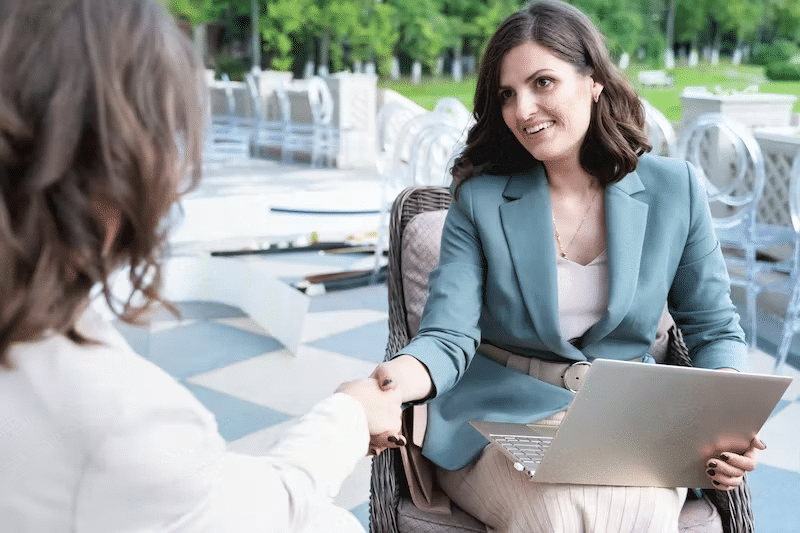
Wedding planners make all the difference between a daydream and a reality. They help you plan your big day from start to finish, from planning to implementing details. This guide will help you understand what skills are needed to become a wedding planner in the UK. It will also show you how to balance your skills and interests with your career goals to get the most out of them.
Who Is A Wedding Planner?
A wedding planner oversees the whole event from beginning to end. They also ensure that everything goes smoothly and that the couple’s wishes are fully met.
The role of a wedding planner can be compared to that of a general manager for an event or a company. They need to handle all aspects of the event, including planning, budgeting, staffing, and logistics.
Roles And Responsibilities Of A Wedding Planner
Wedding planners also play a crucial role in ensuring all the guests have an enjoyable time at the event. They ensure that everything runs smoothly and assist guests with entertainment and food.
The roles and responsibilities of a wedding planner are clear. They will help with the planning, budgeting, wedding venue selection, catering, and more.
This means that they must be able to work well under pressure and handle stress well to do their job well.
Here are some examples of duties you might have as a wedding event planner:
- Locate and book locations for ceremonies and receptions.
- Make a timeline for the wedding day.
- Recommend wedding industry experts (flowers, photographer, transport, hair, etc.)
- organise RSVPs and the guest list.
- Discover coordinated and chic favours.
- Assist with the wedding dress and any other wedding party clothes
- Accommodations for safe wedding guests
- Plan a vacation
- Resolving numerous last-minute crises
- Assembling personal items and wedding presents for the couple
5 Key Characteristics Of A Qualified Wedding Planner

The skillset for being a qualified wedding planner is vast because they have experience in many different planning areas such as budgeting, time management, organizing details, etc.
Good wedding planners have certain qualities that help them to fulfil their duties.
We have discussed some of them below:
Calm Under Pressure
Wedding planners have to be calm under pressure and be able to multitask, given the number of tasks they have on their hands. They also need to know how to handle different types of personalities and different sets of expectations.
Communication Skills
A wedding planner must have strong communication skills as they interact with many people throughout the planning process. They must be able to communicate with their clients and other professionals to ensure that everything goes smoothly at the event.
Negotiation Skills
Negotiation skills are the skills of wedding planners that make them successful. They have to be able to negotiate with the vendors and suppliers, find suitable venues, plan the budget and organise everything for the big day.
Organisational Skills
A professional must be organised and have excellent time management skills to do their job successfully. They also need strong negotiation skills to work with vendors and suppliers on pricing, terms, deadlines, etc.
Planning Skills
A professional needs excellent planning skills to plan weddings from start to finish without any mistakes happening along the way. This includes knowing how much time each stage will take so that they can budget accordingly.
Step-by-Step Process To Becoming A Wedding Planner
Becoming a successful wedding planner requires certain skills that are not immediately obvious. Here is a step-by-step procedure on how to become one:
Identify Your Strengths And Weaknesses
The first step in becoming a wedding planner is identifying strengths and weaknesses. This is important because it helps you determine what career path would be best for you. It also helps determine which qualifications you need to have to be successful in this industry.
Learn About The Industry And Its Trends
Becoming a wedding planner starts with learning about the industry and its trends. One should learn about the different types of weddings and their variations, like destination or romantic weddings. They should also learn about the different types of services they should offer, such as venue selection, photography, catering, and decorating.
Gather Your Experience At A Wedding Planner School
If you want to become a wedding planner, consider attending a school specialising in this field. Becoming one is difficult, as it requires years of experience and education. This will give you an idea of what it takes to succeed in this field and also teach you about different aspects of planning weddings from different cultures and countries.
Register With An Industry Association And Find Out About Job Opportunities In Your Area
Before you search for a wedding planner job, you should learn about the opportunities available in your area. You should register with an industry association and find out about job opportunities in your area. You can also start networking with people who know the industry well.
Create A Portfolio Of Your Work
You should start by creating your portfolio of work. This includes samples of your writing, photographs, and artwork you have created. It will also include information about your education and experience.
Develop A Business Plan
You should develop a business plan that tells the company what kind of person you are and what skills you have that they need help with in their business or event planning company. This will detail your career goals, the type of work you want to do, how much money you want to make, etcetera.
What You Should Know As A Wedding Planner

To become a wedding planner, you must have the right skill set and experience. You need to be knowledgeable in the following areas:
Event Planning And Management
Wedding planners must now have a knowledge base in marketing, event planning and management, and customer service. This knowledge base will help them deliver more personalised services to their clients.
Budgeting
As a wedding planner, your job is to ensure your client has the perfect wedding. You must plan everything – from the venue to the food and entertainment.
There are two ways to budget for weddings:
The traditional way of budgeting is based on a fixed amount.
It is based on the idea that money is scarce and you need to save it by only spending a certain amount every month. This can be overwhelming because new expenses always pop up, and you might need more money than planned.
The modern way of budgeting is based on a percentage of your total income.
It allows you to spend whatever money you want without worrying about running out or having too much left over at the end of the month.
Legal Requirements
As a wedding planner, you must know your industry’s legal requirements. You have to find out what is and isn’t allowed in your state and what kind of license you need to operate.
The legal requirements for being a wedding planner include the following:
- Licensing
- Insurance
- Liability insurance
Logistics
Logistics is a tricky thing. It can be easy if everything goes according to plan, but it can be difficult when unforeseen circumstances, such as weather conditions or transportation delays, occur.
As a wedding planner, you are responsible for the event’s logistics. This includes everything from ensuring enough staff to deciding on your venue to managing your budget and other expenses.
Catering
As a wedding planner, you will be expected to meet your client’s needs and cater to their needs. You must have a strong knowledge of catering and the industry in general.
When it comes to catering, knowledge is power. With this in mind, you must be well-versed with the latest trends in food and beverage services. You should also understand how food can make or break your event’s success.
Photography
As a wedding planner, knowing how to use photography in your work is important. You can use photography to tell your clients’ stories, capture their emotions, and create memories that will last a lifetime.
Conclusion
The process of arranging a wedding can be incredibly stressful, so many brides seek the assistance of wedding planners and consultants to help them put together what may be the most important day of their lives.
A wedding planner assists the bride in organising every facet of the wedding, from the larger components, such as the church and reception venue, to the smallest ones, like table favours and bridesmaid outfits. Wedding planners are, indeed, the backbone of any wedding event.
Was this article helpful? Let us know in the comments.
FAQs
What is the difference between a wedding planner and a wedding coordinator?
A wedding planner is a person who arranges all the details for a couple’s big day. A wedding coordinator is someone who helps execute the plans for the day.
The main difference between these two positions is that a planner works on planning and coordinating with vendors, while a coordinator works with vendors to execute specific tasks.
A planner will help you plan your big day, while a coordinator will help you execute your plans.
How many hours a week do you typically work as a professional wedding planner?
The average number of hours a week that a professional wedding planner works are between 40 and 50 hours. This includes planning, organizing, and hosting events.
How much does it cost to become a wedding planner?
The cost of becoming a wedding planner varies from state to state and from country to country. Certain skill sets are required for this profession, such as event management, marketing, and event planning.












